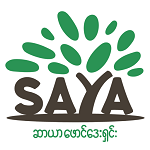Training of Religious Educators
The project is grounded in three interconnected key issues identified within Myanmar’s society and education system:
1. Religious teachers’ insufficient understanding of other religions’ teachings and misunderstandings towards other religious groups observed in the misinformation spread by religious leaders to their followers.
2. A lack of platforms for educators from different religious institutions to engage in dialogue on creative approaches to teaching religious texts, compounded by hierarchical structures among monks and religious leaders that discourage questioning and leave teachers silently frustrated with existing teaching and learning methods.
3. Religious educators’ limited use of interactive, critical, and dialogical strategies in teaching, which weakens students’ ability to engage critically with religious texts, particularly evident in the Myanmar Buddhist context where monks are primarily trained through lectures, memorization, and examinations.
The project brought together 44 educators from three different religious traditions—Buddhism, Christianity, and Islam—to explore key themes in education. The training program covered seven core areas: (1) Digital Literacy and Safe Use of the Internet, (2) Child Rights and Child Protection, (3) Trauma Healing, (4) Dialogue in the Classroom, (5) Child Psychology, (6) Educational Philosophies and Approaches, and (7) Lesson Planning and Action Planning. To assess progress, Saya developed a competency checklist used for both pre- and post-training evaluations, which provided clear evidence of participants’ learning.







